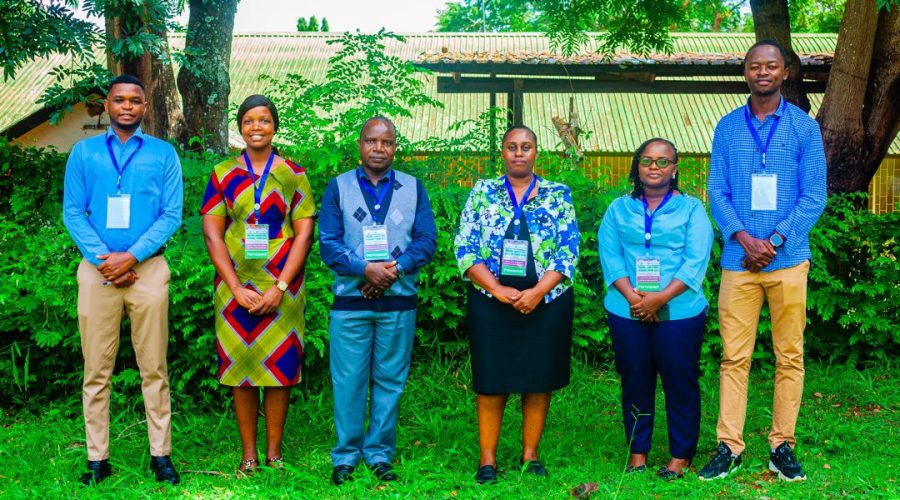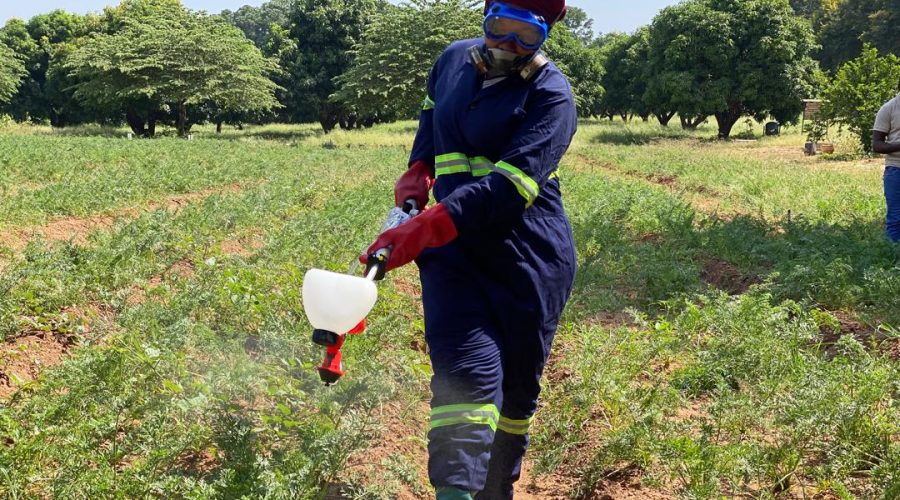CONGRATULATIONS……!!!!!!!!
It is a great pleasure and honor to announce, that on Friday, December 4th, 2020 our beloved YASINTA BEDA NZOGELA a member of staff at the Department of Crop Science and Horticulture successfully defended her Ph.D. thesis titled “Characterization of Plant-Parasitic Nematodes and Host Resistance in Rice Production in Tanzania “ from Ghent University. It was a long journey of hard and funny moments, hundreds of books, and articles to read, hundreds of hours writing the thesis.
Below is the short story of Dr.Yasinta Nzogela sharing her academic journey
BSc; Agronomy- Sokoine University of Agriculture (2006)
MSc. Nematology- Ghent University (2011)
PhD.in Bioscience engineering, Title; Characterization of Plant-Parasitic Nematodes and Host Resistance in Rice Production in Tanzania- Ghent University (2020)
Are of research: Nematology specialized on Plant-parasitic nematodes, plant host – parasitic nematodes interactions, (Genotyping, histochemical localization of compounds, secondary metabolite profiling and molecular characterization of compatible and incompatible interactions), plant-parasitic nematodes characterization and managements (Sampling, extraction, morphological & molecular identification) Entomopathogenic nematodes isolation culturing and its application in crop protection.
Summary of the Ph.D. thesis
Due to the strong population growth in Tanzania, there is an increased demand for rice, which means that farmers have to look for higher productivity. Optimal rice production is hindered by several factors, including plant-parasitic nematodes. Our field analysis showed that the main species are the root-knot nematode (Meloidogyne) and the root-lesion nematode (Pratylenchus). Our experiments with different infection levels showed that Pratylenchus zeae caused the most significant losses under drought conditions with approximately 100% loss in seed yield at the highest inoculum. Yield losses also increased with increasing infection pressure under irrigated and irrigated conditions. Using resistant varieties is one of the most effective methods of controlling nematodes. Therefore, rice genotypes from East and West Africa were evaluated for resistance to nematodes. The popular cultivar Supa was found to be resistant to P. zeae and partially resistant to Meloidogyne javanica and M. graminicola. The study of possible resistance mechanisms was conducted by life cycle analysis, ie attraction, penetration, development and reproduction. In the final part of this thesis, root extracts and metabolites of the resistant Supa were compared with the sensitive Mwangaza. The root extracts of Supa inhibited the motility of P. zeae. Metabolome analysis showed that phenylpropanoids may be involved in Supa’s resistance to P. zeae.
Publications;
- https://brill.com/view/journals/nemy/22/4/article-p381_3.xml https://doi.org/10.1163/15685411-00003312
- https://doi.org/10.1163/15685411-00003302
“Behind every successful Ph.D. student, there is a very committed, cooperative and strong supervisor” by Yasinta Nzogela
Message to young scientist: I am a role model and a true ambassador to women who have to study and take care of their families. Hard work pays. The secret of success is focusing the full power of all you are on what you have a burning desire to achieve. Young ladies in research carrier should not be afraid of further studies and taking care of their families. The only secret of getting ahead is getting started and the secret of getting started is breaking your complex overwhelming tasks into small manageable tasks. I am a mom to four lovely kids and 3 among 4 were blessings during my Ph.D. study.
” You never took pride in your achievements but it is time to feel proud. You have nailed it and outshined us all. Congratulations once again.”



